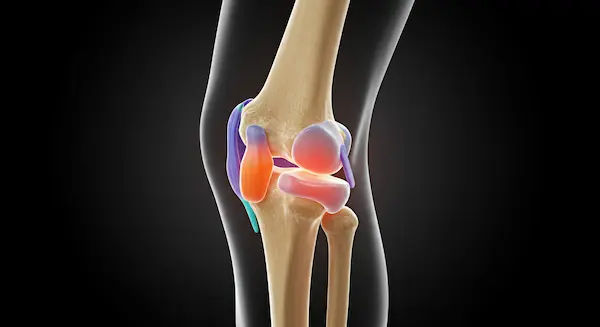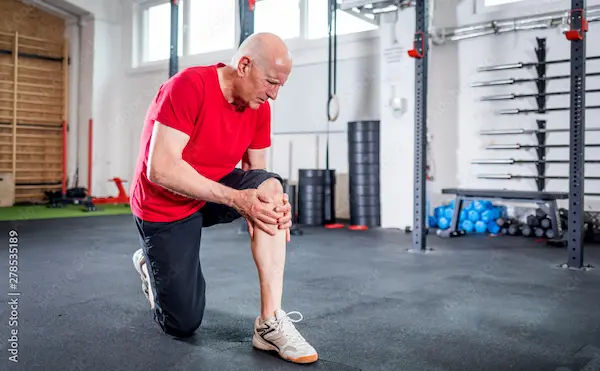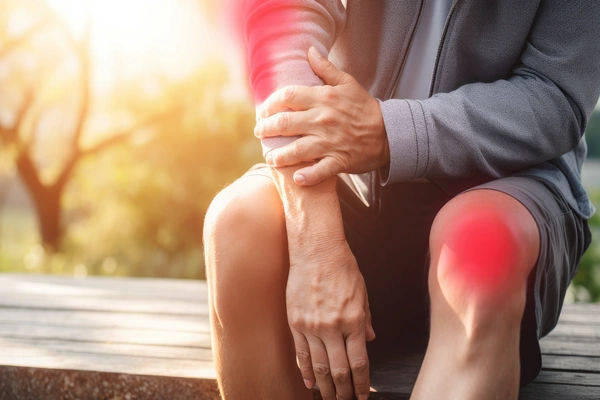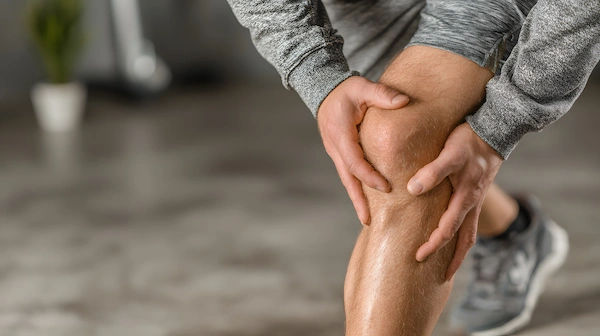Why Regular Checkups Are Crucial For Joint Health?
Discover why regular medical checkups are essential for joint health. Early detection of joint issues can prevent arthritis, improve mobility, and support long-term joint function through timely care and lifestyle changes.

Written by Dr. J T Hema Pratima
Reviewed by Dr. D Bhanu Prakash MBBS, AFIH, Advanced certificate in critical care medicine, Fellowship in critical care medicine
Last updated on 13th Jan, 2026
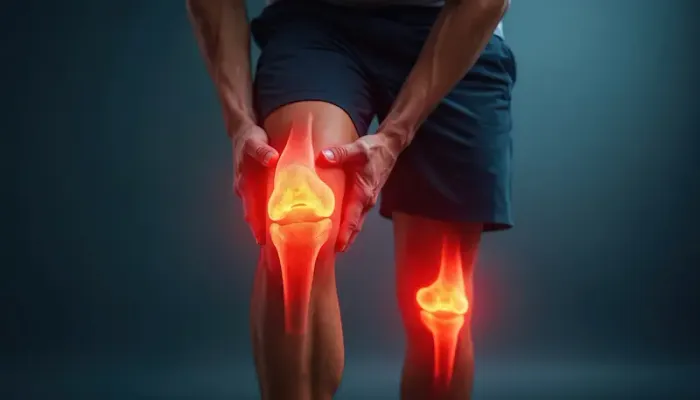
Have you ever gotten out of bed with a stiff knee or heard a faint creak in your shoulder? Joint discomfort is often dismissed as a normal part of ageing, but it’s actually your body’s early warning system. Waiting until pain becomes debilitating is a strategy that can lead to decreased mobility and complex treatments. This is where the power of regular checkups becomes crucial. Proactive joint care isn't just for athletes or the elderly; it's a vital practice for anyone who wants to maintain an active, pain-free life. This article will guide you through why these examinations are your best defence, what to expect during one, and how they empower you to take control of your musculoskeletal health long before a minor ache becomes a major problem.
Understanding Your Joints
Your joints are incredible feats of biological engineering. They are not simple hinges but complex structures where two or more bones meet, designed to provide both stability and an impressive range of motion. Keeping them healthy is fundamental to your ability to move freely and without pain.
The Anatomy of a Healthy Joint
A healthy joint relies on a synergy of components. Bones are capped with a smooth, slippery tissue called cartilage, which acts as a shock absorber and allows for frictionless movement. The joint is enclosed in a capsule lined with the synovial membrane, which produces synovial fluid to lubricate the joint. Ligaments connect bones to bones, providing stability, while tendons connect muscles to bones, enabling movement. When any one of these components is compromised, it can lead to stiffness, pain, and loss of function.
Common Culprits of Joint Deterioration
The most common threat to joint health is arthritis, an umbrella term for over 100 conditions involving joint inflammation. Osteoarthritis, the "wear-and-tear" arthritis, involves the gradual breakdown of cartilage. Rheumatoid arthritis is an autoimmune disorder where the body's immune system attacks the joint lining. Other major culprits include injuries (which can lead to post-traumatic arthritis), obesity (placing excess stress on weight-bearing joints), and simple repetitive use over time. Understanding these threats underscores why monitoring joint health is so important.
Why Early Detection is Non-Negotiable?
Many joint diseases, particularly osteoarthritis, begin long before any symptoms arise. Damage to cartilage can be occurring silently for years. By the time you feel persistent pain, significant degradation may have already occurred.
The Cost of Waiting: Treatment vs. Prevention
The approach to joint health can be viewed through two lenses: treatment and prevention. Treating advanced arthritis or a severe joint injury often involves expensive interventions—physical therapy, strong medications, injections, or even surgery like joint replacement. These are not only costly but also involve significant recovery time. Preventative care, through regular checkups, aims to identify risks and early signs long before this stage. A doctor can help you develop a plan involving exercise, diet, and supplements that may delay the onset of disease or prevent it altogether, representing a far simpler and more cost-effective path.
Catching Conditions Before Symptoms Appear
This is the most powerful aspect of regular examinations. During a checkup, a doctor might detect slight limitations in your range of motion, subtle swelling you hadn't noticed, or even early signs on an X-ray prompted by your family history. Catching rheumatoid arthritis early, for instance, is critical to starting disease-modifying drugs that can slow its progression and prevent irreversible joint damage. This proactive shift—from responding to pain to preventing its cause—is what makes these checkups truly crucial.
Consult Top Specialists
What Does a "Joint Health Checkup" Actually Involve?
If you’ve never had one, the idea of a joint checkup might seem vague. It’s typically a multi-faceted process designed to build a complete picture of your musculoskeletal health.
Step 1: The Comprehensive Medical History Discussion
Your appointment will likely begin with a detailed conversation. Your doctor will ask about any current pain, stiffness, or swelling. Be prepared to discuss your lifestyle: your activity level, your diet, and any repetitive motions you perform at work or during hobbies. Crucially, they will ask about your family history, as many joint conditions have a genetic component. This dialogue helps identify potential risk factors and guides the next steps.
Step 2: The Physical Examination (Range of Motion, Strength, Swelling)
The doctor will physically examine your joints. This involves checking for warmth, redness, and swelling. They will assess your range of motion by asking you to move your joints in specific ways (e.g., bending your knee or rotating your shoulder). They will also test the strength of the surrounding muscles and check for instability. This hands-on exam can reveal a lot about the function and health of your joints.
Step 3: Diagnostic Tests (When Are They Needed?)
Not every checkup requires advanced tests. They are typically ordered if your history or physical exam suggests an underlying issue.
Imaging: X-Rays, MRIs, and Ultrasounds
X-rays are excellent for showing the space between bones (indicating cartilage loss), bone spurs, and fractures.
MRIs provide detailed images of soft tissues like cartilage, tendons, ligaments, and muscles, helping diagnose injuries not visible on X-ray.
Ultrasounds can be used to visualise soft tissues in real-time and can guide injections for treatment.
Lab Tests: Blood Work for Inflammation and Disease Markers
If an inflammatory or autoimmune arthritis like rheumatoid or gout is suspected, your doctor may order blood tests. These can check for markers like:
Erythrocyte Sedimentation Rate (ESR)
C-Reactive Protein (CRP)
Rheumatoid Factor (RF)
Antinuclear Antibodies (ANA)
Uric Acid levels (for gout)
If your condition requires diagnostic blood work, Apollo24|7 offers convenient home collection services, allowing you to get tested without a lab visit.
Get The Test Here
Key Benefits of Scheduling Regular Joint Examinations
Committing to regular checkups provides a cascade of benefits that extend far beyond simply avoiding pain.
Pain Prevention and Maintaining Mobility
The most immediate benefit is the preservation of a pain-free, active lifestyle. By identifying issues early, you and your doctor can implement strategies to reduce inflammation, strengthen supporting muscles, and improve flexibility, all of which keep you moving comfortably.
Personalised Lifestyle and Management Plans
Generic advice online is no match for a plan tailored to your specific body, history, and goals. A doctor can recommend the right kind of exercise (e.g., swimming over running for bad knees), specific dietary changes to reduce inflammation, and weight management targets that are realistic and effective for you.
Long-Term Preservation of Joint Function
Ultimately, the goal is to preserve your joint function for decades to come. Regular monitoring allows for fine-tuning your management plan over time, adapting to changes in your life and body. This proactive approach is the single best way to ensure your joints support you through all of life’s activities.
Who Needs Regular Joint Checkups the Most?
While everyone can benefit, certain groups should consider making joint health a priority.
High-Risk Groups: Athletes, Seniors, and Obese Individuals
Athletes and Physically Active People: Subject their joints to high impact and repetitive stress, increasing the risk of acute injuries and early osteoarthritis.
Seniors (50+): Cartilage naturally wears down over time, making this age group more susceptible to osteoarthritis.
Obese Individuals: Excess body weight significantly increases the load on weight-bearing joints (knees, hips, spine), accelerating cartilage breakdown.
Those with a Family History of Autoimmune or Joint Diseases
If rheumatoid arthritis, lupus, or other autoimmune disorders run in your family, your genetic risk is higher. Regular screenings are crucial for early detection and intervention, which can dramatically alter the disease's course.
Beyond the Doctor's Office: Daily Habits for Lifelong Joint Health
Your doctor’s advice is only part of the equation. What you do every day is equally important.
Anti-Inflammatory Nutrition for Strong Joints
Focus on a diet rich in omega-3 fatty acids (found in fatty fish, walnuts), antioxidants (berries, leafy greens), and spices like turmeric. Reduce processed foods, sugars, and saturated fats, which can promote inflammation.
The Right Kind of Exercise: Low-Impact is Key
Stay active! Movement circulates synovial fluid, nourishing the joints. Opt for low-impact activities like swimming, cycling, yoga, and walking, which strengthen the muscles around the joints without excessive wear and tear.
Weight Management and Its Direct Impact on Your Knees and Hips
Every pound of excess weight exerts about four pounds of extra pressure on your knees. Losing even 10 pounds can take 40 pounds of pressure off your knee joints with every step. This is one of the most effective ways to prevent or manage osteoarthritis.
Conclusion
The health of your joints is inextricably linked to your overall quality of life. Ignoring them until they scream in protest is a gamble with your mobility and independence. Embracing the practice of regular checkups is a proactive, empowering, and crucial strategy. It shifts the paradigm from passive suffering to active management. These examinations provide the insights needed to create a personalised plan, catch problems in their earliest—and most treatable—stages, and empower you with the knowledge to support your joints through daily choices. Don’t wait for pain to be your guide. Take charge of your joint health today by scheduling a consultation with your doctor. If you're experiencing persistent stiffness or want a baseline assessment, you can consult a specialist online with Apollo24|7 to discuss your joint health concerns.
Consult Top Specialists
Consult Top Specialists

Dr. Anil Pradeep Jadhav
Orthopaedician
23 Years • MBBS MS (Ortho)
Nashik
Apollo Hospitals Nashik, Nashik
(25+ Patients)

Dr Vikas P Birla
Orthopedics-Sports Medicine
13 Years • MBBS, DNB, MNAMS, Fellowship in Shoulder and Sports Injury
Delhi
Apollo Hospitals Indraprastha, Delhi

Dr. Arshi Raunaq Singh
Orthopaedician
7 Years • MBBS, M.S.(ORTHOPAEDICS), F.I.J.R
Hyderabad
Apollo Hospitals Jubilee Hills, Hyderabad
(75+ Patients)

Dr. Jatin Vakhariya
Orthopaedician
11 Years • MBBS, DNB (ORTHO), D. ORTHO, FIAS
Ahmedabad
Apollo Hospitals Gandhinagar, Ahmedabad

Dr. Bhanu Prakash Reddy Rachamallu
Orthopaedician
24 Years • MBBS , D'ORTHO, DNB (ORTHO), Mch (ORTHO), Fellow in ARTHROPLASTY
Hyderabad
Apollo Hospitals Jubilee Hills, Hyderabad
(75+ Patients)
More articles from Joint Pain
Frequently Asked Questions
1. How often should I get a joint health checkup?
There's no one-size-fits-all answer. If you're under 50 with no symptoms or risk factors, discussing joint health during your annual physical may suffice. Those over 50, with risk factors, or experiencing early signs should consult a doctor to establish a personalised schedule, which might be annually or bi-annually.
2. What are the early warning signs of joint problems?
Early signs can be subtle. Watch for persistent stiffness (especially in the morning), reduced range of motion, slight swelling or tenderness around a joint, a feeling of grating or grinding (crepitus), or occasional pain during or after activity that you didn't have before.
3. I'm too young for arthritis, right?
Wrong. While osteoarthritis is more common with age, autoimmune forms like rheumatoid arthritis can strike at any time, including in young adults and even children (JIA). Repetitive stress injuries can also lead to joint damage in young athletes. Age is not a reliable protector.
4. Can diet really affect my joint health?
Absolutely. Foods high in sugar and saturated fat can increase inflammation in the body, potentially worsening joint pain. Conversely, an anti-inflammatory diet rich in omega-3s, antioxidants, and spices can help reduce inflammation and provide the building blocks for healthy cartilage.
5. What's the difference between seeing an orthopedist and a rheumatologist?
Generally, an orthopedist specialises in the musculoskeletal system, often focusing on injuries, mechanical problems, and surgery (e.g., torn ligaments, joint replacements). A rheumatologist specialises in autoimmune and inflammatory diseases that affect joints (e.g., rheumatoid arthritis, lupus). Your primary care doctor can help guide you to the right specialist.


